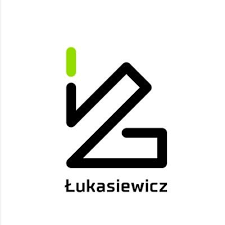The United States Call Center AI Market is projected to grow with a significant CAGR in the forecast period. Economic development and substantial infrastructure development have constituted regional revenue generation. Further, the patterns associated with domestic production, import and export, and consumption have helped market participants to analyze and capitalize on potential opportunities. Besides, the qualitative and quantitative parameters provided in the report with detailed analysis highlights the driving and restraining factors of the United States Call Center AI Market.
Market Segmentation & Coverage:
This research report categorizes the Call Center AI to forecast the revenues and analyze the trends in each of the following sub-markets:
Based on Component, the Call Center AI Market studied across Compute Platforms, Services, and Solutions. The Services further studied across Consulting, Support and Maintenance, and System Integration and Deployment.
Based on Deployment, the Call Center AI Market studied across On-Cloud and On-Premises.
Based on Vertical, the Call Center AI Market studied across Banking, Financial Services, and Insurance (BFSI), Healthcare, Media & Entertainment, Retail & E-Commerce, Telecom, and Travel & Hospitality.
Company Usability Profiles:
The report deeply explores the recent significant developments by the leading vendors and innovation profiles in the United States Call Center AI Market including Google, IBM, Microsoft, Oracle, and SAP.
FPNV Positioning Matrix:
The FPNV Positioning Matrix evaluates and categorizes the vendors in the Call Center AI Market on the basis of Business Strategy (Business Growth, Industry Coverage, Financial Viability, and Channel Support) and Product Satisfaction (Value for Money, Ease of Use, Product Features, and Customer Support) that aids businesses in better decision making and understanding the competitive landscape.
Competitive Strategic Window:
The Competitive Strategic Window analyses the competitive landscape in terms of markets, applications, and geographies. The Competitive Strategic Window helps the vendor define an alignment or fit between their capabilities and opportunities for future growth prospects. During a forecast period, it defines the optimal or favorable fit for the vendors to adopt successive merger and acquisition strategies, geography expansion, research & development, and new product introduction strategies to execute further business expansion and growth.
Cumulative Impact of COVID-19:
COVID-19 is an incomparable global public health emergency that has affected almost every industry, so for and, the long-term effects projected to impact the industry growth during the forecast period. Our ongoing research amplifies our research framework to ensure the inclusion of underlaying COVID-19 issues and potential paths forward. The report is delivering insights on COVID-19 considering the changes in consumer behavior and demand, purchasing patterns, re-routing of the supply chain, dynamics of current market forces, and the significant interventions of governments. The updated study provides insights, analysis, estimations, and forecast, considering the COVID-19 impact on the market.
The report provides insights on the following pointers:
1. Market Penetration: Provides comprehensive information on the market offered by the key players
2. Market Development: Provides in-depth information about lucrative emerging markets and analyzes the markets
3. Market Diversification: Provides detailed information about new product launches, untapped geographies, recent developments, and investments
4. Competitive Assessment & Intelligence: Provides an exhaustive assessment of market shares, strategies, products, and manufacturing capabilities of the leading players
5. Product Development & Innovation: Provides intelligent insights on future technologies, R&D activities, and new product developments
The report answers questions such as:
1. What is the market size and forecast of the United States Call Center AI Market?
2. What are the inhibiting factors and impact of COVID-19 shaping the United States Call Center AI Market during the forecast period?
3. Which are the products/segments/applications/areas to invest in over the forecast period in the United States Call Center AI Market?
4. What is the competitive strategic window for opportunities in the United States Call Center AI Market?
5. What are the technology trends and regulatory frameworks in the United States Call Center AI Market?
6. What are the modes and strategic moves considered suitable for entering the United States Call Center AI Market?


